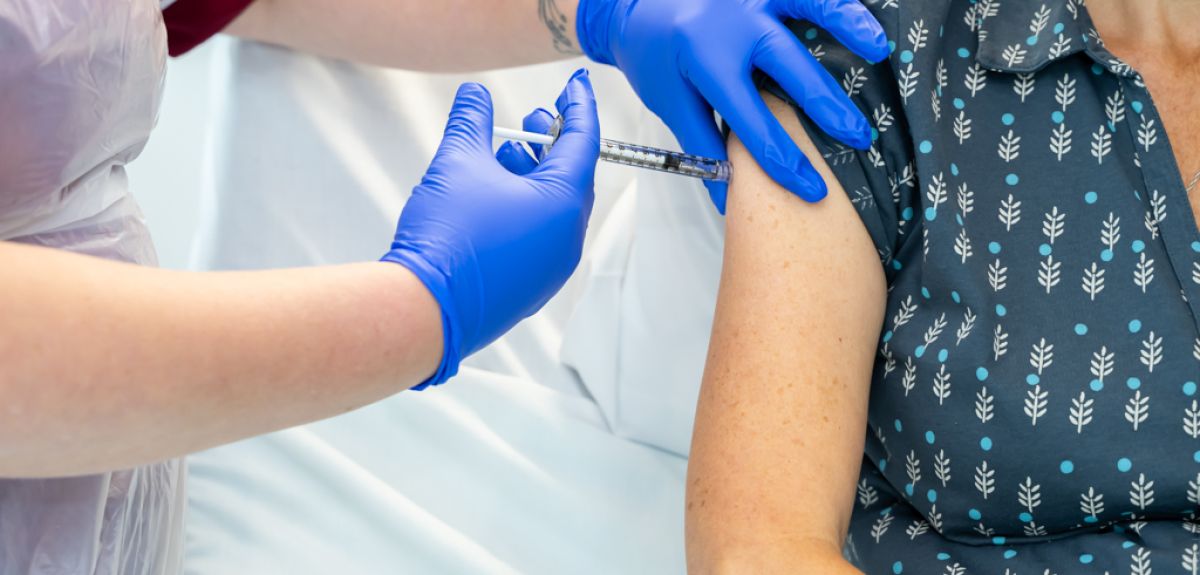
Oxford and Liverpool scientists launch new vaccine trial for Middle East Respiratory Syndrome (MERS)
A new clinical trial to find a vaccine to protect people against Middle East Respiratory Syndrome (MERS) launched last week (Friday 15 September 2023). This is the third Phase I clinical trial of the ChAdOx1 MERS vaccine, developed by researchers at the University of Oxford’s Pandemic Sciences Institute. It is the first trial in older people.
MERS is a viral illness caused by MERS coronavirus (MERS-CoV) – from the same viral family as COVID-19 – with no approved vaccines or treatments currently available. Outbreaks can start when the virus spreads from camels to humans, with up to a third of all infections proving fatal.
First identified in Saudi Arabia in 2012, previous outbreaks have occurred in the Middle East and South Korea, with a case reported in Abu Dhabi in July 2023 and cases from the past year in Saudi Arabia reported in August 2023. The World Health Organization recognises MERS as a priority infectious disease that requires urgent research to develop vaccines.
The University of Oxford started to develop a vaccine against MERS using the ChAdOx1 platform before the COVID-19 pandemic.
It was this research that paved the way for such rapid development of the Oxford/AstraZeneca vaccine in 2020, which has saved an estimated 6 million lives worldwide. This underlines the need for continued global funding and focus on vaccine development for lesser-known diseases.
Professor Dame Sarah Gilbert at the University of Oxford’s Pandemic Sciences Institute and developer of the ChAdOx1 MERS vaccine said: “This trial is an important step in the development of a vaccine against MERS coronavirus.
“Prior to the COVID-19 pandemic, we had already tested our ChAdOx1 MERS vaccine in young adults in the UK and Saudi Arabia. Those trials provided information that was critical for the rapid development of the Oxford/AstraZeneca COVID-19 vaccine.
“We are now returning to the task of developing a vaccine against MERS, and for the first time will test it in older adults, which is the age group most in need of protection against this life-threatening virus.”
Eighty-four people aged 50 to 70 will participate in the trial in Liverpool, which follows two previous Phase I clinical trials in the UK and Saudi Arabia.
These trials found the vaccine generated a strong immune response against MERS after one dose and was well tolerated by healthy volunteers aged 18 to 50. This trial will build on earlier results and will examine vaccine safety and immune responses in older people, after one and two doses of the vaccine.
The trial is led by the University of Oxford’s Oxford Vaccine Group, funded by CEPI, and delivered by the Liverpool School of Tropical Medicine and the Liverpool University Hospitals NIHR Liverpool Clinical Research Facility at Royal Liverpool University Hospital. Vaccitech plc retains commercialisation rights to ChAdOx1 MERS and is collaborating with the University of Oxford and CEPI to develop the vaccine.
Dr Melanie Saville, Executive Director of Vaccine Research & Development at CEPI, funders of the trial, said: “The world continues to bear witness to the grave danger and devastation that coronavirus threats can bring through the COVID-19 pandemic – and its deadlier viral cousin MERS remains of regional and global concern as highlighted by recent cases in Abu Dhabi and Saudi Arabia.
“This latest Phase I trial of Oxford’s MERS vaccine, developed on the ChAdOx1 platform – one of only a few clinically validated rapid-response platforms globally – is of particular importance as the findings will provide critical guidance on how we can better protect vulnerable communities from the health and socioeconomic impact of this deadly pathogen.”
Dr Andrea Collins, Senior Clinical Lecturer in Respiratory Medicine at Liverpool School of Tropical Medicine and trial Principal Investigator said: “We are excited at Liverpool School of Tropical Medicine to deliver this Phase I clinical trial. We have already recruited thousands of participants into infectious disease and vaccination clinical trials, and we have a database of amazing volunteers in Liverpool stepping forward to participate just like they did during the COVID-19 pandemic. We couldn’t do this without them, so thank you to every one of them.”
Professor Maheshi Ramasamy, Clinician Scientist at the Oxford Vaccine Group and the trial’s Chief Investigator said: “MERS has a higher fatality rate than COVID-19 and we don’t yet have effective treatments or vaccines for it. This trial is an exciting opportunity to build on our partnership with Liverpool, developed during the Oxford COVID-19 vaccine trials, to investigate a promising vaccine against another potentially lethal coronavirus.”
 Statins do not cause the majority of side effects listed in package leaflets
Statins do not cause the majority of side effects listed in package leaflets
 Activism proves a stimulating topic at Sheldonian Series event
Activism proves a stimulating topic at Sheldonian Series event
 New Oxford-led initiative launches to train future leaders in transformative technologies for pharmaceutical research
New Oxford-led initiative launches to train future leaders in transformative technologies for pharmaceutical research